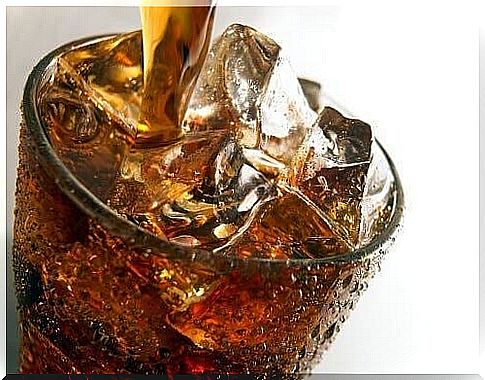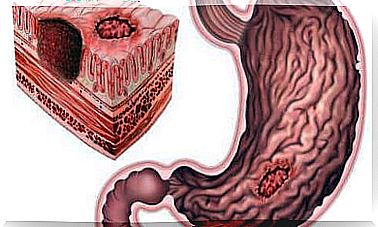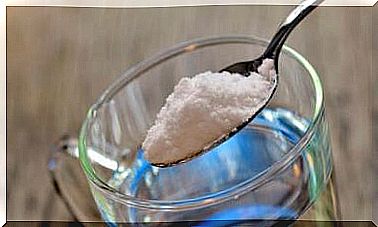Flatulent Foods: Avoid Them!
Flatulence, gas formation or burglaries can be very uncomfortable and arduous, but usually only occur briefly and temporarily. However, there could also be symptoms that severely impair everyday life.

Most of the time, flatulence can be relieved with a change in diet and certain lifestyle habits. In doing so, it is important to know about flatulent foods that you should avoid in order to finally put an end to this problem. Find out more about this topic today.
How does flatulence arise?
Flatulence and gas build-up are caused by the accumulation of air in the digestive tract. In this case, specialists speak of meteorism. In most cases, those affected take in too much air while eating or chewing. However, the complaints can also arise from the fermentation of food by intestinal bacteria.
It is usually a completely normal process that is resolved simply by expelling the excess air. However, some people can experience very severe gas, which causes discomfort and severe pain.
Certain situations favor flatulence:
- Certain medicines
- Problems with intestinal motility
- Various diseases such as intestinal dysbiosis (imbalance of intestinal bacteria), irritable bowel syndrome or celiac disease
- Problems absorbing carbohydrates
Sometimes gas build-up cannot be prevented, but knowing the foods that cause gas can help you control the situation. Then we look at which foods you should better avoid, as they can be problematic.
Flatulent foods that you should avoid

1. Carbonated drinks
Perhaps you don’t think about the fact that drinks can also have bloating effects. But carbonated soft drinks in particular are very popular and are often responsible for flatulence.
If the carbon dioxide it contains is not properly discharged, it can build up in the digestive system and cause discomfort.
2. Legumes are also flatulent foods
Legumes are generally rich in nutrients, but they contain alpha-galactosides, a type of carbohydrate that cannot be digested and is therefore fermented by bacteria in the gut. As a result, gases are created that accumulate. Legumes also provide a lot of fiber, which also promotes gas, especially if the person is not used to consumption.
It is therefore advisable to only eat small portions of legumes. It is best to choose only peeled legumes, for example red lentils. Another option is to puree the legumes (humus or a cream soup) to alleviate the discomfort.
3. Onion, garlic and leek
Onions, garlic and leeks are rarely eaten alone. But they give many dishes an excellent taste and are therefore very popular. They contain fructans. These are water-soluble oligo- and polysaccharides that are very difficult to digest and therefore often cause flatulence.
Various types of grain, such as wheat or rye, and vegetables such as artichokes, peas or cabbage also contain fructans, but to a lesser extent.
4. Apples and other fructose-rich foods
Apples not only contain an important amount of fructose, but also sorbitol. Both substances are difficult to tolerate for some people. In addition, apples and legumes provide a lot of fiber.
Other fructose-rich fruits, such as pears, peaches and plums, should also only be consumed in small quantities.
5. Cruciferous vegetables are also flatulent foods
The cruciferous family includes broccoli, Brussels sprouts, and cauliflower, among others. These vegetables contain raffinose, an indigestible carbohydrate that enters the large intestine and ferments there.
However, various kitchen tricks can help you reduce the bloating effect, as these vegetables are very healthy!
- Eat small portions and do not mix different types of vegetables from the cruciferous family.
- Steam the vegetables until they are well done.
- Add caraway seeds, bay leaves, ginger, or other spices that will prevent flatulence.

6. Sweeteners
Polyols (or sugar alcohols) are very poorly digestible substances that can replace white sugar. They are known under the names xylitol, sorbitol and mannitol and are used in many ways, especially for “sugar-free” or “light” products.
Because they are difficult to digest, bacteria ferment them in the intestines. This creates substances that benefit the intestinal mucosa, but gas is also formed. If the gases are not properly evacuated, pain and other unpleasant ailments can result.
Control flatulent foods
We’ve outlined the main types of gas that cause gas, but of course there are others that fall into this group. In addition , everyone reacts differently. Some do not tolerate specific foods well, so it is very important to observe yourself and analyze the effects of certain foods.
You can only consume these foods in small portions or, if necessary, do without them altogether. Don’t forget to seek medical examinations and advice if any warning signs such as altered stool consistency, bleeding when defecating, unexplained weight changes, constipation, or diarrhea occur.









